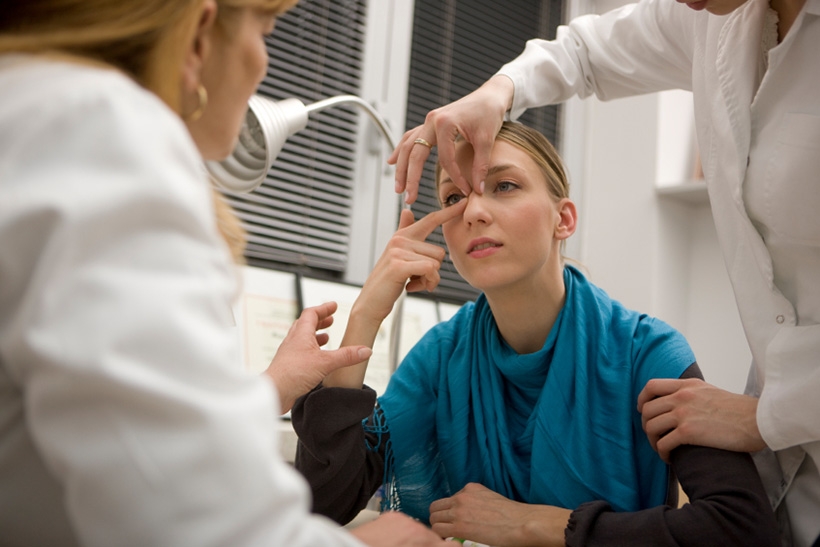Nasal congestion, drainage, and sinus pain are part of everyday life for those who have chronic sinusitis. It’s sometimes caused by nasal polyps, structural abnormalities within your nose, or tissue changes related to allergies.
When nasal sprays, allergy treatments, and other conservative therapies don’t help manage the symptoms, surgery often becomes the best treatment option, and many patients understandably jump at what may be a permanent fix for their sinus symptoms.
Sometimes, however, the initial surgery doesn’t solve the issue. Nationwide, about 30% of these surgeries require a repeat procedure, which is known as a sinus surgery revision.
Dr. Yeung is a highly respected surgeon whose reputation for excellence is well-deserved. After performing more than 4,000 nasal surgeries, his surgical “re-do” rate is just 0-1%, which puts him well under the national average. This gifted surgeon offers these same skills to patients who come to him for a revision.
He’s happy to answer a few questions about sinus surgery revision and why it’s often well worth the effort.
Why would I need sinus surgery revision?
Revision endoscopic sinus surgery (RESS) is performed when the initial surgery didn’t relieve your symptoms or when the surgery causes a new problem.
You may, for instance, require another sinus surgery because the initial procedure was incomplete, which can result in scar tissue or adhesions forming in the sinus. These tough, fibrous tissues can cause an obstruction in the affected sinus.
The obstruction from the adhesions causes fluids to build up in your sinus cavities. This results in chronic inflammation, congestion, drainage, and many of the same symptoms that led to your initial sinus surgery. With a revision procedure, I remove the obstruction and open your sinuses, which can provide long-lasting relief from your symptoms.
Nasal polyps, which are fleshy, noncancerous growths within your nasal passages, are also a common cause of chronic sinusitis and may develop after sinus surgery. These are easily removed with RESS. A deviated or crooked nasal septum (the wall between your left and right nasal passage) may also require revision surgery.
Before recommending RESS, I complete a careful examination that includes diagnostic studies of your sinuses, such as a CT scan, to identify the underlying reason for your sinus symptoms. Understanding the cause of your chronic symptoms helps me determine whether revision surgery is the best treatment option for your condition.
What is RESS like?
You can expect to be asleep for this outpatient surgery, which means you won’t typically need an overnight hospital stay.
RESS is an endoscopic procedure, during which I insert a small, flexible tube with an attached camera into your nostril. As I come across abnormalities, I use a variety of surgical instruments to remove excess tissue, shave nasal polyps, or otherwise enlarge narrowed sinus openings.
Compared to your first procedure, there may be some challenges with a revision surgery because of structural changes that may have occurred after your original sinus surgery. This is why a surgeon’s skill and experience, as well as presurgical diagnostic studies that provide a clear map of your sinuses, are so important.
What can I expect after RESS?
You can expect some discomfort and swelling for several days after the surgery that’s typically relieved with over-the-counter meds like Tylenol®.
There will be some nasal drainage that may be blood-tinged, but this decreases over several days. Aspirin and non-steroidal anti-inflammatory medications (such as Motrin®) can cause excessive bleeding and should be stopped for two weeks before and two weeks after surgery.
Most patients report feeling more tired than usual for up to a week after the procedure and typically take a week off work. We also ask that you avoid lifting anything heavier than 20 pounds and vigorous physical activity for 10-14 days after surgery.
Otherwise, we’ll give you precise pre/postoperative instructions before scheduling the surgery and see you back in the office for several follow-up visits after the procedure.
If you’re contemplating sinus surgery revision and want one of the nation’s top sinus surgeons leading your team, schedule an appointment at Houston Sinus Surgery.




